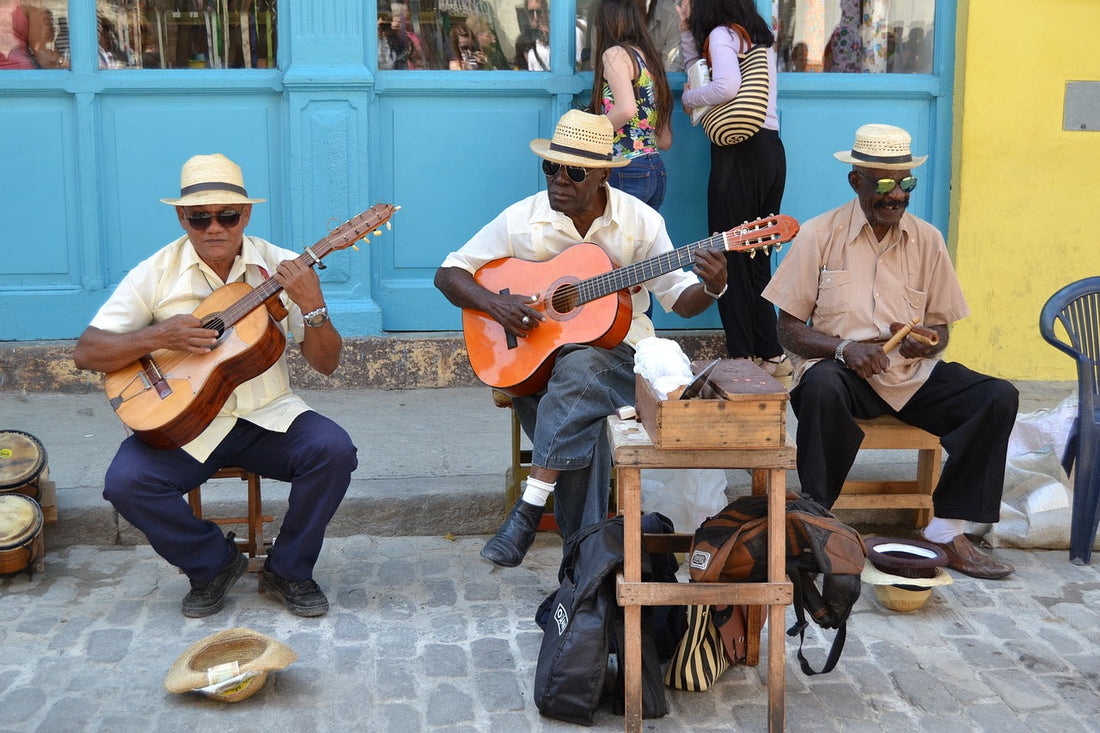
30 Cuban Spanish Expressions You Need to Sound Like a Local
Share
Have you ever visited Cuba or spoken with a Cuban and felt completely lost in the conversation? Cuban Spanish is full of unique expressions, colorful slang, and idioms that make it both charming and challenging for Spanish learners. If you want to blend in and sound like a local, mastering these expressions is key!
Cuban Spanish is fast, rhythmic, and often playful, reflecting the vibrant spirit of the island. The words can be clipped, syllables dropped, and phrases packed with double meanings and humor. Understanding Cuban expressions opens a window not only into the language but also into the resilient, joyful, and creative character of the Cuban people.
In this article, we’ll explore 30 essential Cuban Spanish expressions that will help you understand and communicate more naturally. Whether you’re strolling through Old Havana, dancing salsa in Santiago, or chatting with a Cuban friend online, these expressions will bring you closer to authentic Cuban culture. Let’s dive in!

Want to Master Cuban Spanish?
The best way to learn these expressions is by seeing them in real-life conversations. Short Stories in Cuban Spanish is full of authentic dialogue, fun short stories, and cultural insights to help you master Cuban slang naturally!
- 20 engaging short stories set in Cuba
- Glossaries and comprehension questions after each chapter
- Notes on Cuban slang, culture, and pronunciation
- Perfect for intermediate Spanish learners
With every story, you'll get closer to speaking Cuban Spanish with confidence and style.
30 Essential Cuban Spanish Expressions
1. ¡Asere, qué bolá!
A very Cuban way of saying “Hey, what’s up?” It's often used between friends and is almost a national greeting!
2. Dale
Similar to “let’s go” or “okay.” It’s a versatile word used for encouragement, agreement, or enthusiasm.
3. ¿Qué bola contigo?
A casual way of asking “What’s up with you?” It reflects the easygoing and friendly nature of Cuban conversations.
4. Chao pescao
A fun and rhyming way to say “Goodbye,” similar to “See you later, alligator.” Adds humor and friendliness to farewells.
5. No cojas lucha
Means “Don’t stress out” or “Don’t worry about it.” A mantra that truly embodies Cuba’s relaxed lifestyle philosophy.
6. Está volao
Used to describe something amazing, crazy, or extremely good. A wild party? Está volao!
7. Se formó
Means “It’s on!” or “Things just got serious.” Often used when drama, arguments, or excitement erupt suddenly.
8. Tírate un paso
Encourages someone to dance or move—very common at Cuban parties full of salsa and reggaeton.
9. Voy a hacer un bisne
Means “I’m going to do some business,” often informally, highlighting Cuba’s creative, informal economy.
10. Me tienes hasta el último pelo
Means “You’re driving me crazy” (literally, "You have me up to the last hair"). A colorful way to express frustration.
11. Yuma
A foreigner, especially from the United States or Europe. "El Yuma" often refers warmly to tourists in Havana.
12. Jinetero/Jinetera
Refers to hustlers or people trying to make money off tourists—sometimes through unofficial means.
13. Puro/Pura
Informal and affectionate terms for one’s father or mother, showing Cuba’s deep familial bonds.
14. Socio/Socia
Used to call a friend, like “buddy” or “mate.” A word that emphasizes friendship and trust.

15. Guajiro/Guajira
Refers to someone from the countryside—often associated with honesty, simplicity, and traditional values.
16. Fula
Can mean “dangerous” or refer to foreign currency, especially U.S. dollars, crucial in Cuba’s dual economy.
17. Camello
The nickname for old Cuban buses shaped like a camel, but also slang for someone who works tirelessly.
18. Un pipo
Means a guy, similar to “dude.” You’ll hear this casually among young Cubans in Havana's neighborhoods.
19. Una jeva
A young woman, girlfriend, or simply an attractive girl. Very popular in Cuban youth slang.
20. Monina
A playful or affectionate way to refer to a girl, often teasing or flirtatious in tone.
21. Estar en la luna
To be spaced out or distracted, literally “to be on the moon.” Commonly said in schools or at work.
22. Ser un mango
Describes a very attractive person. If someone says “¡Qué mango!”—it’s a big compliment!
23. Más rollo que película
Used when someone talks a lot but doesn’t actually do much. All talk, no action.
24. Se fue con los zapatos
Refers to someone who left without saying goodbye—disappearing quietly.
25. Estar como un flan
Means being very nervous or shaky, like the wobble of a flan dessert!
26. Comerse un cable
To be struggling financially, scraping by day-to-day. Reflects economic realities with Cuban humor.
27. Estar en la papa
Means to be well-off, doing great financially or socially. "Estoy en la papa"—things are going very well!
28. Dar muela
To sweet-talk someone, talk at length, often with the aim of convincing or charming.
29. Formar un rumbón
Means to throw a big, wild party. "Vamos a formar un rumbón" is music to every Cuban's ears.
30. Estar en talla
Means being ready, prepared, or doing great. If you're “en talla,” you’re on point!
Using Cuban Slang in Context
Understanding slang is one thing, but using it correctly is another. Here are some tips:
- Listen actively: Pay attention to how native speakers use these expressions naturally.
- Practice speaking: Incorporate new phrases into your own conversations.
- Watch Cuban media: Movies, TV shows, and music are full of real usage examples.
- Engage with locals: If possible, chat with Cubans to practice and pick up authentic rhythm and intonation.
Bonus: Cuban Spanish in Real Life
Let’s look at a quick fictional example using some expressions you've learned:
—Asere, qué bolá —dijo Carlos al ver a su socio en la esquina.
—Tranquilo, estoy en talla. ¿Tú qué bola conmigo? —respondió Pedro.
—Nada, voy a hacer un bisne, pero después vamos a formar un rumbón. Dale, tírate un paso.
The Musicality of Cuban Spanish
Cuban Spanish is often described as musical, not just for its rhythm and speed, but because of the playful way in which words are twisted, shortened, and adapted. Many expressions come from Afro-Cuban roots, African languages, and centuries of cultural blending, making the dialect rich and layered. It's almost impossible to separate Cuban slang from its music—salsa, son, reggaeton—all echo the lively, resilient spirit of daily conversation.

Why Learning Cuban Expressions Matters
Beyond improving your Spanish, learning Cuban expressions allows you to unlock the heart of Cuban society. Language is the doorway to relationships, laughter, and shared experiences. When you use words like “dale” or “no cojas lucha,” you’re not just speaking Spanish—you’re living Cuban culture. Locals appreciate visitors who make the effort, and you’ll find doors opening for deeper conversations and more genuine friendships.
Common Pitfalls to Avoid
Some Cuban expressions can have different meanings depending on context or tone. “Jinetero,” for example, might simply mean someone trying to sell you a souvenir—or something more suspicious. Always pay attention to facial expressions, body language, and the setting when using new slang. Respectful curiosity will always help you navigate local language with grace and humor.
Expand Your Vocabulary Beyond Havana
Each Cuban province has its own twists on Spanish. Expressions that are common in Havana might be slightly different in Santiago de Cuba, Santa Clara, or Camagüey. Exploring regional variations deepens your knowledge and gives you a richer, more complete understanding of Cuban Spanish as a living, evolving language.
Start Speaking Like a Cuban Today
Don’t let Cuban Spanish intimidate you. These expressions are the key to connecting with locals, enjoying more natural conversations, and understanding Cuban culture on a deeper level. Whether you're planning a trip or just love the richness of Cuban Spanish, now’s the perfect time to take your learning further.
And what better way to reinforce what you’ve learned than through engaging stories that use these expressions in real context?
Short Stories in Cuban Spanish is designed to make you feel like you're walking the streets of Havana, chatting with locals, and living the language. Each story is packed with native expressions, cultural notes, and comprehension tools to help you grow your fluency naturally.
